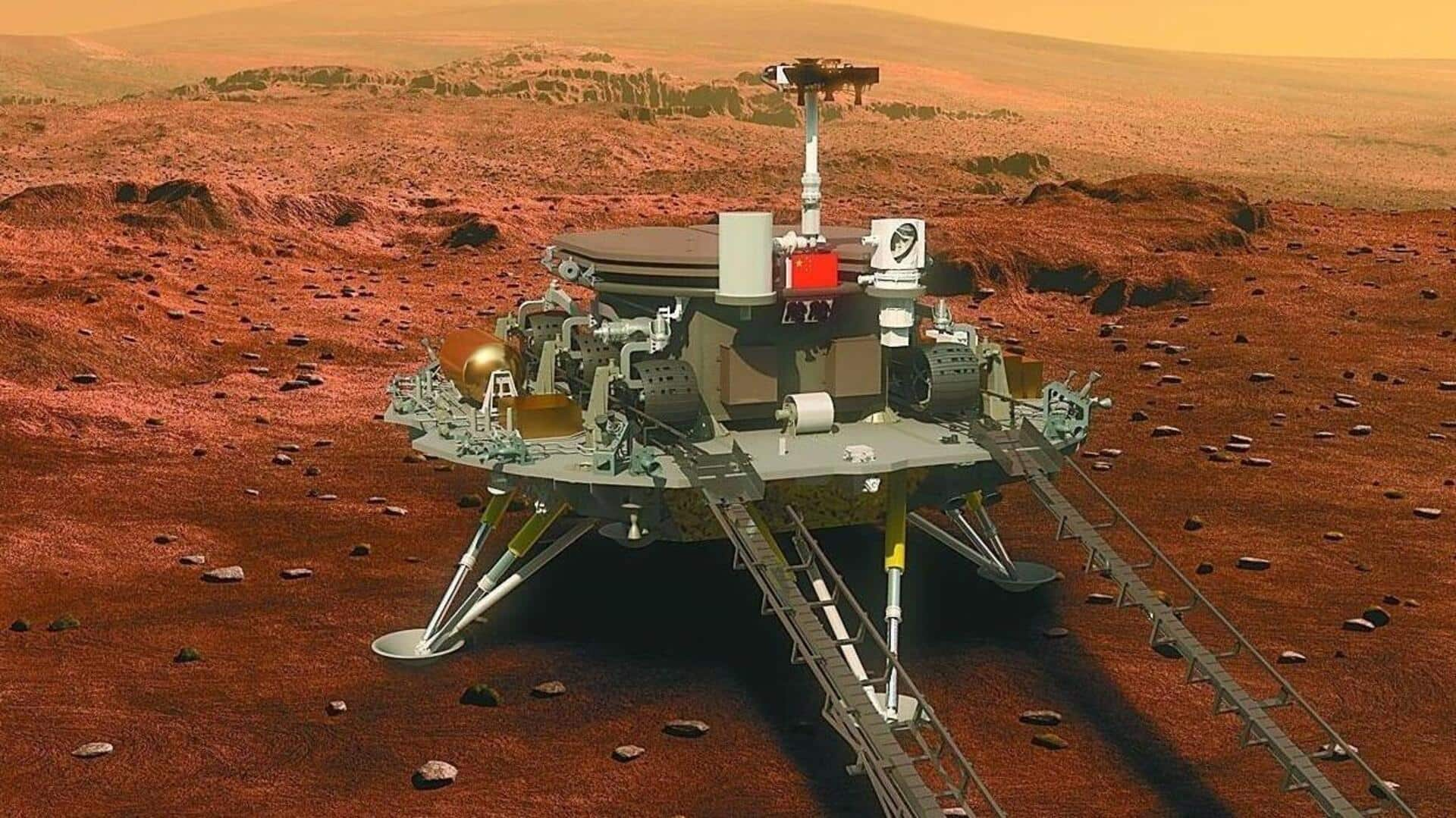
China accelerates Mars exploration plans, targets sample return in 2031
What's the story
China is accelerating its plans for a historic Mars mission, aiming to launch as early as 2028.
This updated timeline, revealed by Liu Jizhong, the chief designer of the mission, at a deep-space exploration event in Anhui province last week, is two years ahead of previous estimates.
The ambitious Tianwen-3 mission involves two launches "around 2028" with the objective of retrieving Martian samples and returning them to Earth.
Space race
China's space ambitions and international competition
The revised launch date aligns with a plan outlined in 2022 by a senior scientist involved with the Tianwen program, which aims to return samples to Earth by 2031.
This announcement follows China's successful retrieval of the first samples from the far side of the Moon in June.
The news comes amid ongoing assessments by NASA and the European Space Agency regarding their own Mars sample retrieval missions, due to concerns over budget, complexity, and risk.
National pride
China's space program: A reflection of national ambition
Becoming the first country to return samples from Mars would be a significant achievement for China's ambitious space program.
It aligns with leader Xi Jinping's "eternal dream" to establish China as a global space power.
This aspiration is reflected in the country's recent advancements, including uncrewed lunar missions and the creation of its own orbital space station.
Mission objectives
Tianwen-3 mission: A search for life on Mars
The Tianwen-3 mission has set its sights on searching for signs of life on Mars.
It also aims to achieve technical breakthroughs in surface sampling, takeoff and ascent from the Martian surface, as well as a spacecraft rendezvous in Mars's orbit.
Liu highlighted the challenges associated with the mission, which includes two initial rocket launches and an unprecedented rocket launch off another planet to return the samples.
Global collaboration
China's commitment to international cooperation in space exploration
China has expressed its commitment to international cooperation for the mission. This includes carrying other countries' payloads, sharing samples and data, and planning future Mars research.
Liu emphasized that "the return mission requires launch from the surface of Mars," adding that "it's actually a small rocket launch - therefore it will be very difficult to ensure the entire flight is reliable."